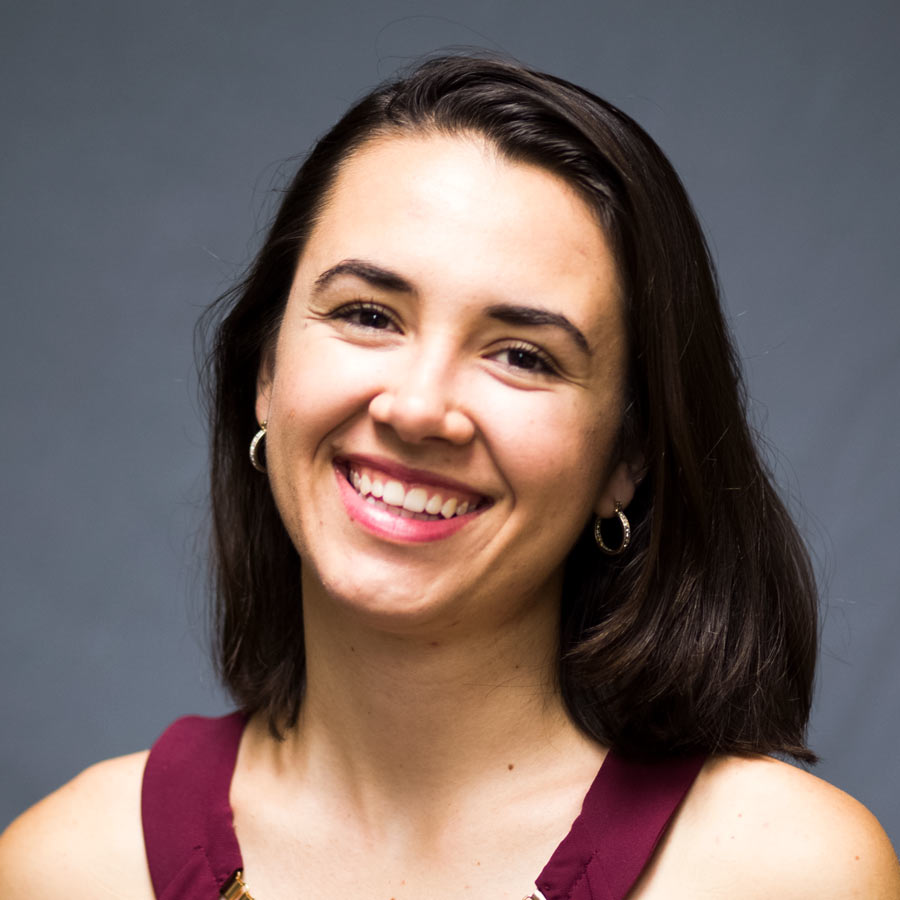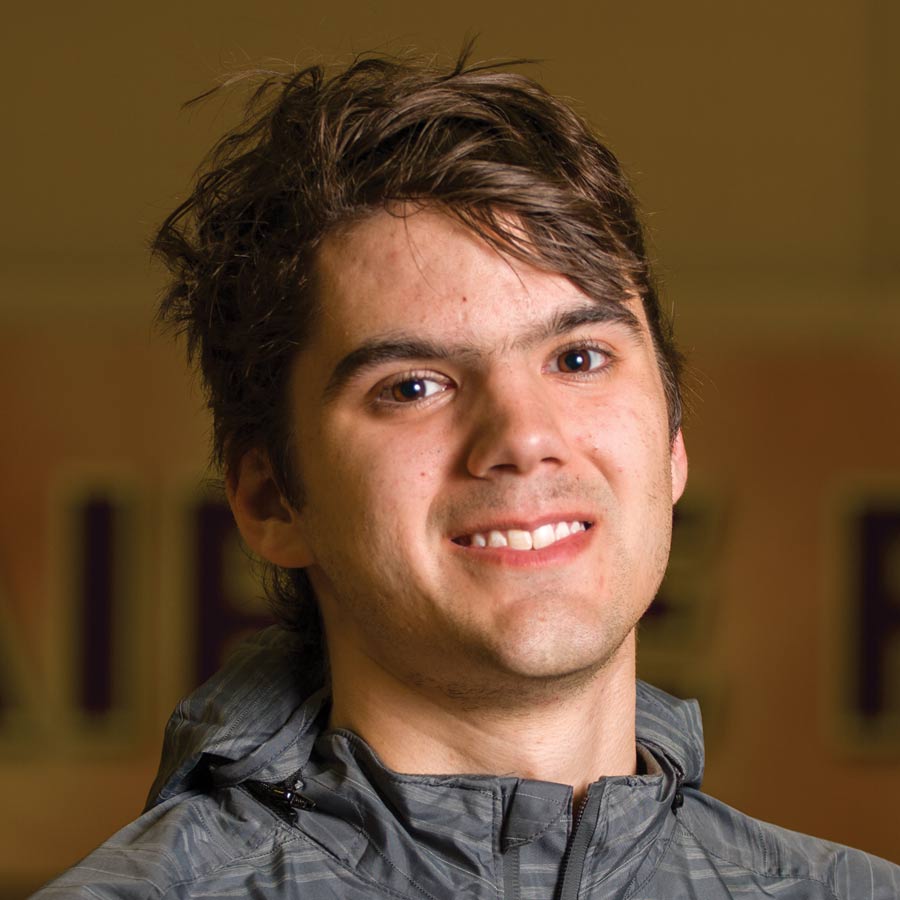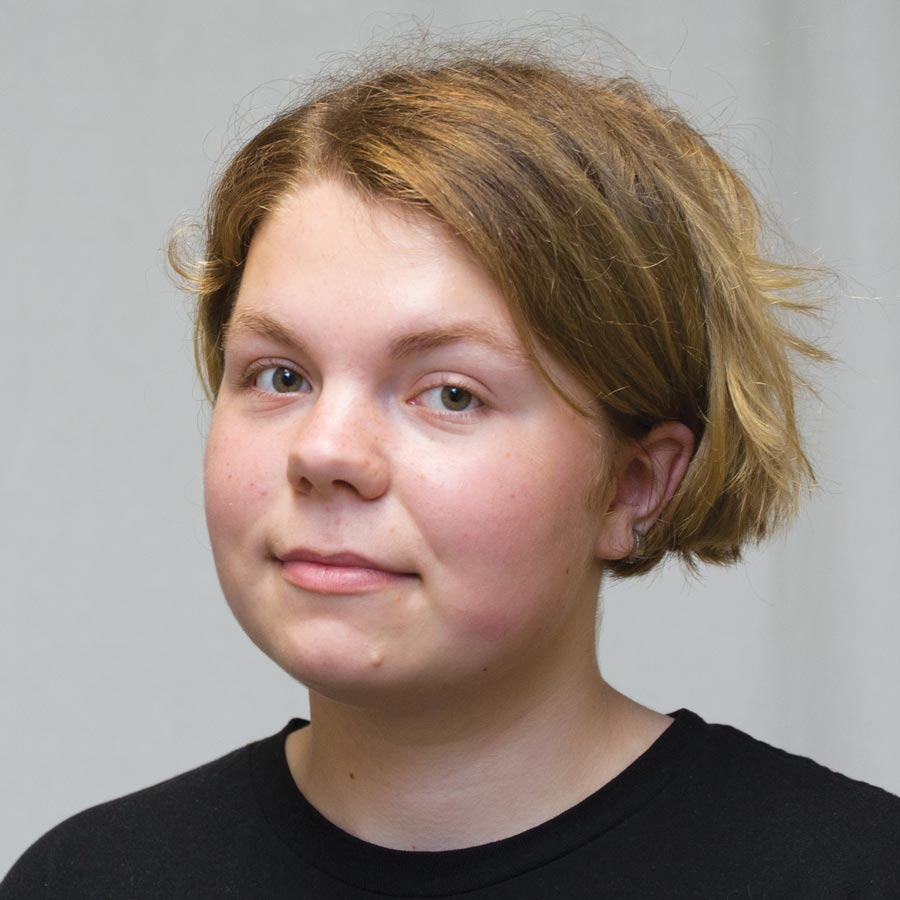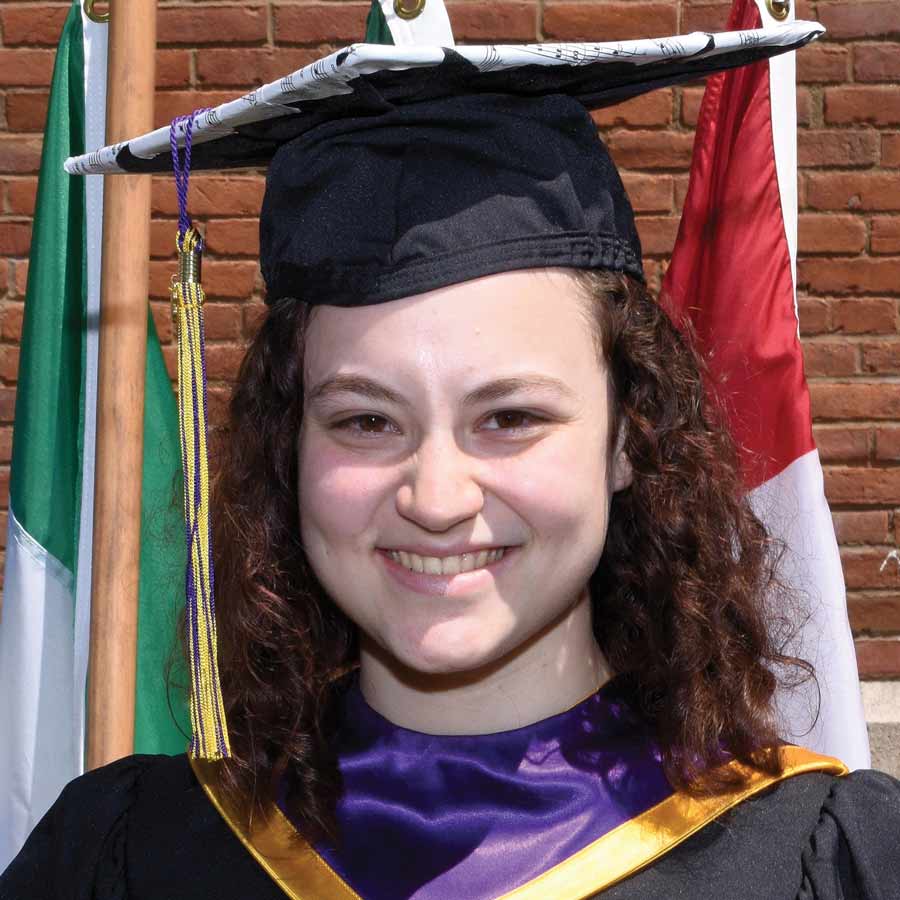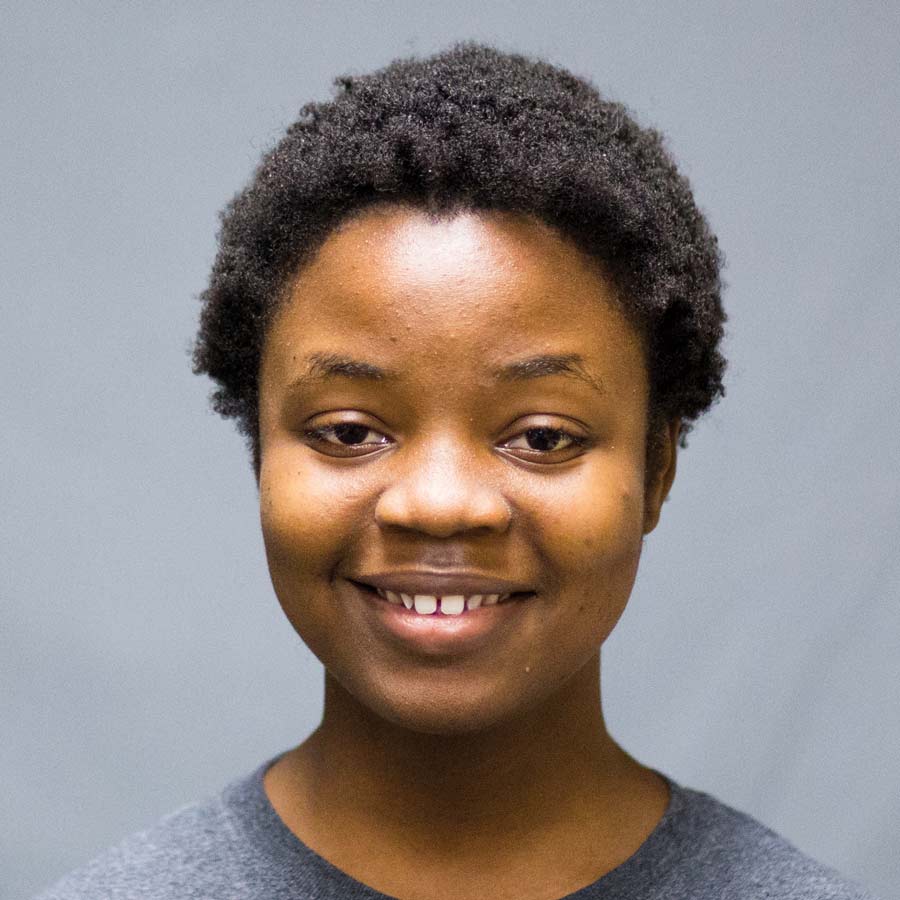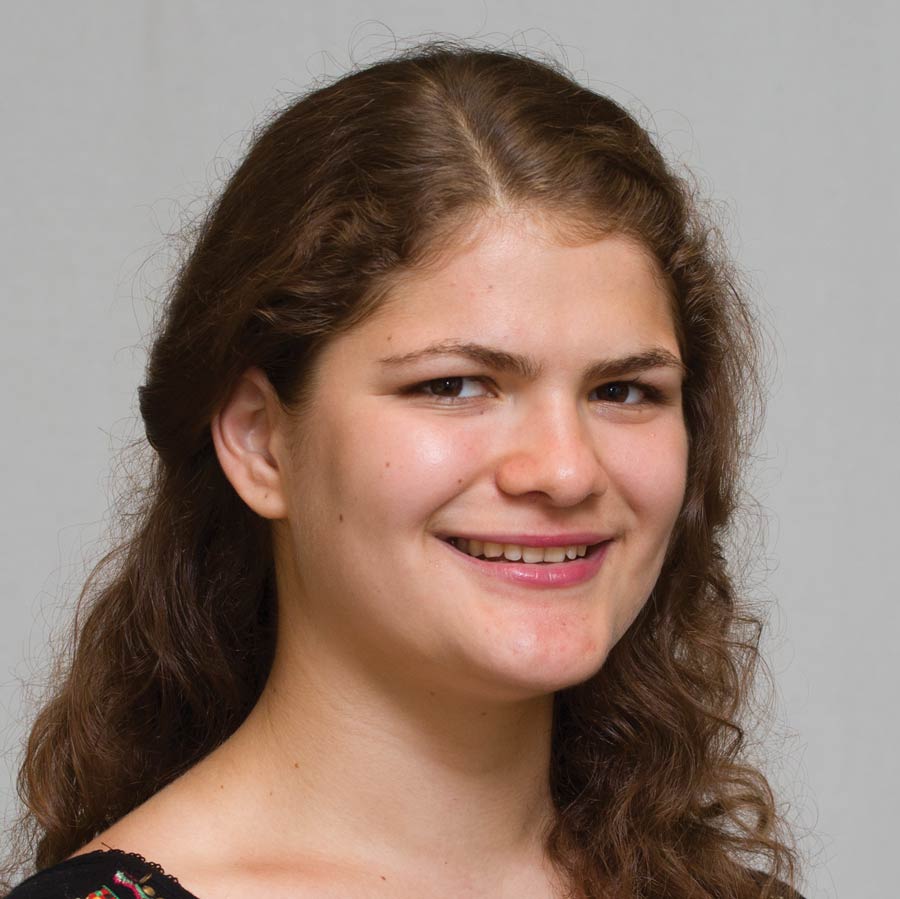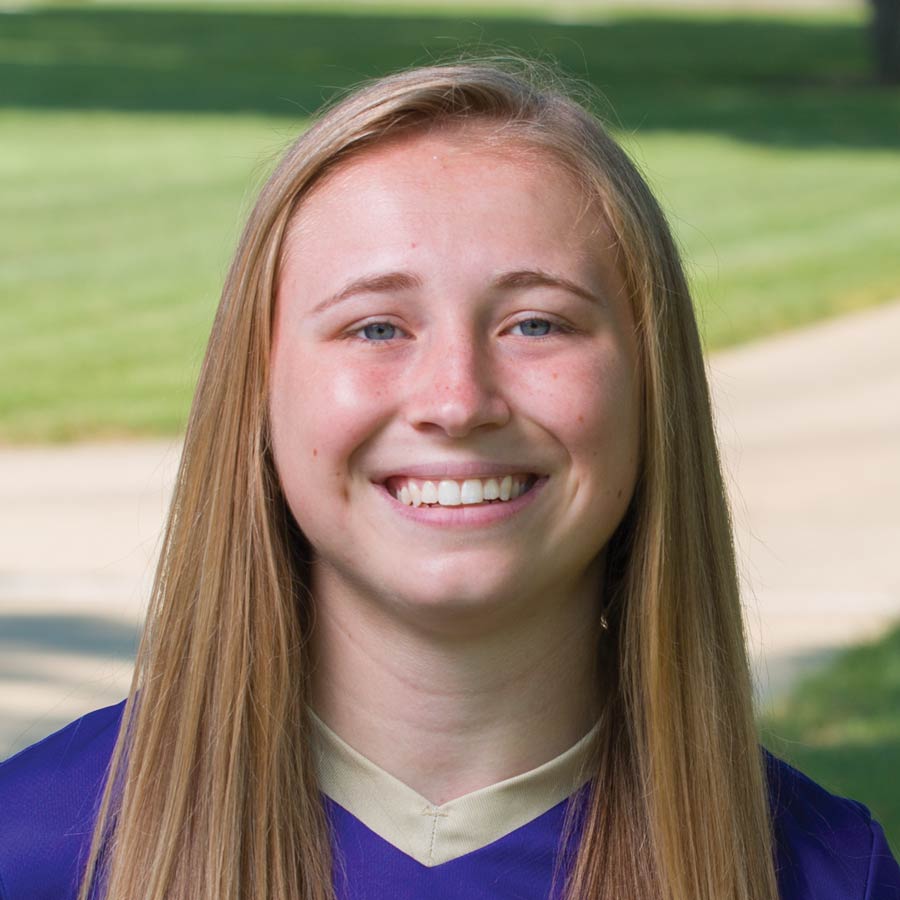The Umbeck Science-Mathematics Center—or SMC (pronounced smack) as it is affectionately called—is one of the campus’ largest buildings, made up of a central core and a series of four wings and various corridors. When terms are in session the classrooms and labs tucked within the wings burst with activity at all hours of the day. One may think that when spring term ends, such activity will cease. Yet walk into SMC on a hot July day, and you’ll quickly find that student researchers and faculty members are busy at work in labs and offices across the building. Some students are putting their research skills to work for the first time, others are utilizing their academic skills to assist—or improve upon—faculty research projects or classroom offerings, and more are collectively adding to new fields of science. Whatever the case may be, SMC is certainly alive with student research and faculty collaboration over the summer months.
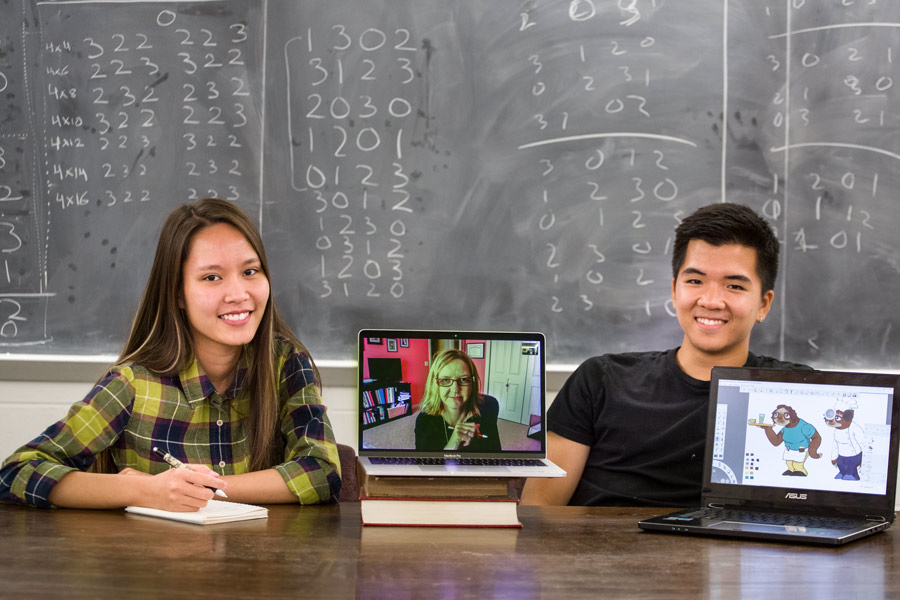
Building the New & Improved
It’s not often that two undergraduate students are given an opportunity to improve upon the work of international scholars, but computer science majors Nhi Cung, a senior, and Billy Nguyen, a junior, got the chance here at Knox. They spent their summer building upon the work of Associate Professor of Computer Science Monica McGill on a game called If Memory Serves.
“This is an educational game designed to teach a concept called ‘pointers’ (which are similar to an entry in a book index) to computer science students. It was developed by a team of computer science professors (including myself) from New Zealand, England, and the U.S.,” McGill said. “The work that Nhi and Billy are doing is extremely important to let us be able to test the game with students and see if they are actually learning from it.”
“The game was already created, and we needed to improve it and make it better in terms of coding, interface, and art,” said Cung. “My project was to can understand better how to play the game.”
Nguyen, who has a passion for art and drawing, focused his work on the visuals of the game. “Anything that you will see on the outside, it’s possible that I drew it,” he said.
Once their work is done, the new and improved game will be released to the world. “Our goal is to get it out to the larger computer science education community so they know it’s there as a resource,” said McGill.
Value Added
“This project created a chance for me to better myself in coding and creating games, which is a big part of my major,” said Cung about her summer research. “Also, it gave me a better idea of how to work on a ‘real’ project, which requires much more effort.”
“Working visually on computer science, using my creativity, was huge for me,” said Nguyen.
Preparing for Life After Knox
Cung and Nguyen both recognize how is today, and their research was geared toward preparing them to enter that world. “I would love to find a job and create something on my own, using the Unity platform,” she said.
“Ideally, I’d like to get into the game industry,” said Nguyen. “It’s a very competitive field, and this experience is good preparation.”
Support for this work is brought to you by the Committee on Faculty Resources and the Paul K. Richter & Evalyn E. Cook Memorial Fund.
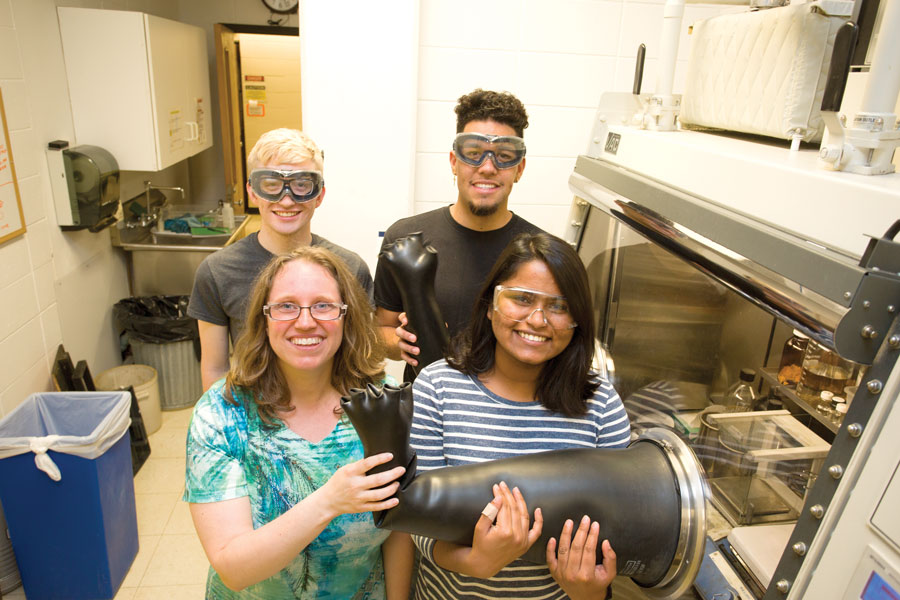
Changing Chemistry One Catalyst at a Time
Associate Professor of Chemistry Helen Hoyt ’01 has been exploring green chemistry—a field of chemistry motivated by environmental sustainability—since her days pursuing Cornell University. Her work continues, only help. Three students worked with her in chemical catalysts that are more environmentally sustainable and affordable.
Junior Diego Morones explored copper catalysts; junior Allen Irvine investigated iron catalysts; and junior Reshma Rajan used a server to virtually run experiments that supported the lab work being done by her colleagues.
“We were looking for the Goldilocks catalyst to ,” said Hoyt of their work.
The work each pursued over the summer has tangible applications to their educations at Knox and beyond. “It was invaluable having the opportunity to be in the lab all the time, doing constant lab work,” said Irvine. For Morones, his goal was to find a way to keep copper stable in the presence of water, a process that may ultimately contribute to ongoing research being done at Indiana University. “Building on past student research, we got some positive results, and we hope to carry that forward,” he said.
For Hoyt, her work mentoring her students is both integral to and a direct extension of her own research. “To be a liberal arts chemist means working with students as collaborators,” she said. “If I’m doing my job right, I’m teaching, training, and collaborating to the point where they are taking ownership over a piece of my ongoing research.”
More about Our Student Researchers
Morones is part of the McNair Scholars Program, which aims to increase the number of underrepresented students who successfully attain Ph.D. degrees. “If I can help move the world to a more sustainable way of living, it would be great.”
Irvine is a biochemistry major with minors in chemistry and economics. “I took Environmental Economics with Professor Steve Cohn . . . [and] it all kind of connected for me,” he explained. “I’m now on the chemistry side researching these new compounds, not just talking about it.”
Rajan, a biochemistry major and Africana studies minor, isn’t often in the lab itself, but her work is integral to the success of her colleagues’ research. “The ultimate goal of computations is to confirm a computational method where eventually we can predict the best molecules to then go back into the lab and start creating,” she explained.
Beyond C Wing
One of the unique advantages of the work being done in Hoyt’s lab is her access to necessary resources beyond her department. For example, Irvine needed a Mössbauer spectromer—a tool that is rarely found at undergraduate institutions—to study his iron catalysts. Luckily, physics professor Chuck Schulz ’72 had one right down the hall from the chemistry lab. In addition, Rajan’s ability to do multiple computations relied on equipment purchased with a grant to Professor David Bunde in computer science to teach parallel programming.
Support for this work is brought to you by: Ronald E. McNair Scholars Program, , Paul K. Richter & Evalyn E. Cook Memorial Fund, Leland Harris Undergraduate Research Fund, Robert G. Kooser Memorial Research Fund, National Science Foundation COAST Program, Knox College Mellon Fellowship Award, American Chemical Society.
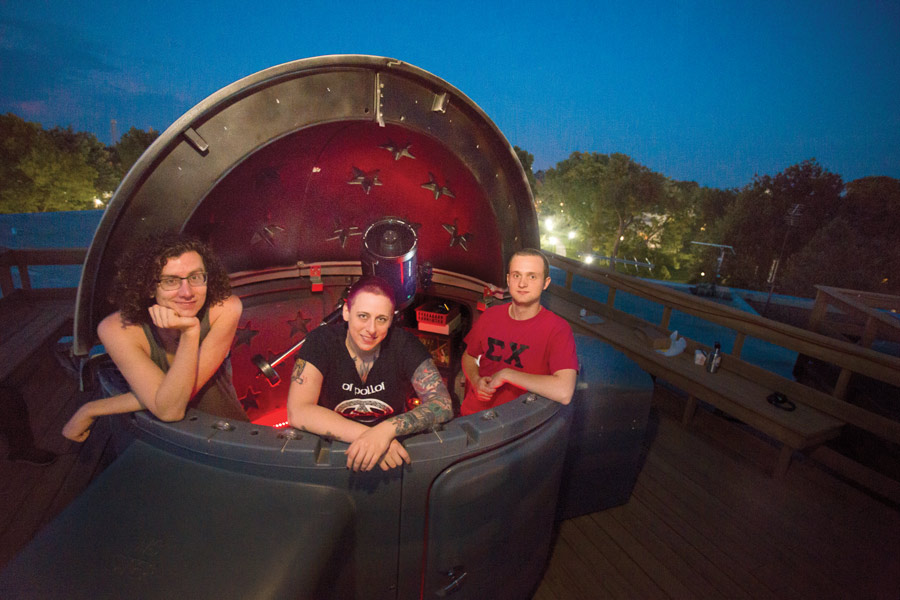
Leaving an Interstellar Legacy
One of the first lessons of research is that plans can change pretty quickly. For example, senior a physics major with a double minor in astronomy and computer science, Physics Nathalie Haurberg ’02 to survey low mass galaxies. “We actually shifted gears and worked to upgrade our telescope (located on the roof of SMC) and on projects and new applications for the telescope,” Driscoll said. “I may be developing projects that students can work on in future astronomy classes."
In July, Driscoll was joined by senior physics major and philosophy minor Tom Trudeau, who was interested in working with a spectroscope to But he soon joined Driscoll on the telescope and its surrounding observatory. “We both took Observational Astronomy together in spring term,” said Trudeau, “and it was a really, really cool class, but we were besieged by problems with the weather not cooperating, the equipment too many people in the observatory at the same time. I wanted to take time now to do things properly.”
So Driscoll and Trudeau worked most evenings—at least when the weather cooperated— with Haurberg to ensure that the telescope and observatory not only functioned but also conducted experiments in order to help future students know the proper steps to take, as well as what issues may arise and how to fix them.
“I’m a trained astronomer, but I’m not trained to curate an observatory,” said Haurberg. “This is a co-learning experience for us, which is why I really value having students.”
Experience is Key
While spending a summer essentially playing trial and error with a telescope doesn’t necessarily sound like valuable academic experience, the opposite is true. “Upgrading the telescope has actually provided me with a lot of engineering problems, which helped me tremendously,” said Driscoll.
“Just having the experience of interacting with the instrument itself, touching it, plugging it in, having something go wrong. This is absolutely professionally applicable,” added Haurberg.
Connections Through Time and Space
Aside from helping improve astronomy courses for future students, Trudeau also found connections to the past in his work. “You feel connected to time and the world around you and the history of all these people who have been doing this for years,” he said.
Support for this work is brought to you by: *Committee on Faculty Resources, Paul K. Richter & Evalyn E. Cook Memorial Fund, Robert Mariner Research Award.
*The Committee on Faculty Resources is a faculty committee that grants funding assistance for faculty research and other support; grants are based upon applications from individual faculty members.
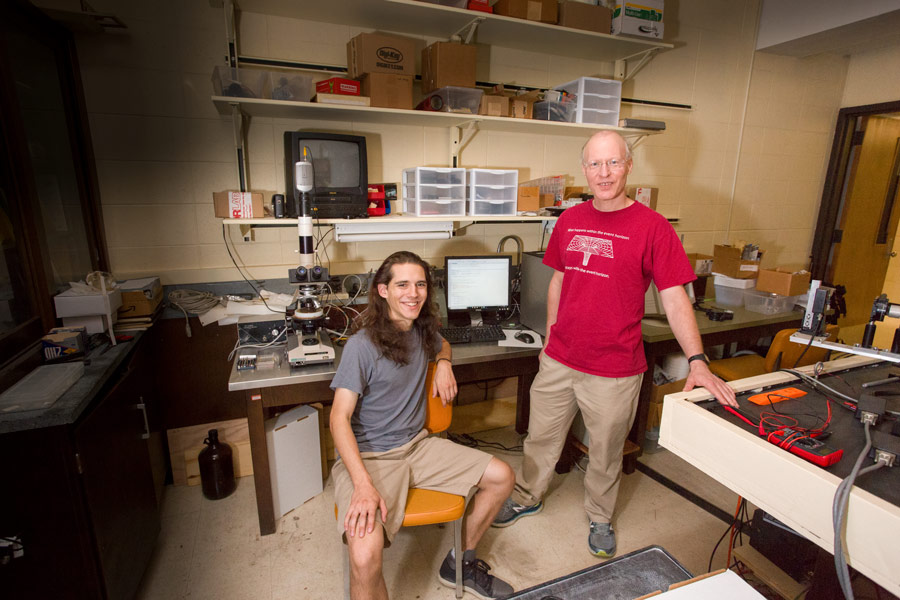
Same Hardware, New Software
Senior Zach Gregory, a physics major and computer science minor, was looking for a summer job that would put his education to work, perhaps even enable him to develop new skills that would better prepare him for graduate school. He ultimately needed to look no further than his very own department. Professor of Physics Tom Moses has long focused on the study of liquid crystals, which are rod-shaped molecules that form different phases of matter, but he needed help better regulating the temperature of those crystals during his experiments. Zach found his summer job.
“Liquid crystals have to be at different temperatures in order for us to observe the different phases of matter that they are putting out,” said Gregory. “I had to basically create a program that would control the analog input of our heating and cooling system, which would get the crystals at the right temperature so that we could run experiments and observe them.”
(For those non-physics folks, Gregory used his computer science skills to create software that more accurately controlled the heating and cooling system and, consequently, the temperature of the liquid crystal.)
"There’s some tricky issues in controlling the computer over a web interface, which we worked to solve this summer," said Professor Moses. "We used old hardware and built new software around it."
Try and Try Again
One of the ways that Gregory gained both valuable and applicable skills from his work was through simply trial and error. Moses noted that "You tend to pick up a lot of skills in a physics experiment—programming, building things in the shop, just the general troubleshooting. Because nothing works the first time."
"And when it does work the first time, those are the rare moments where you question, does this actually work the way I want it to," added Gregory. "When things work, we change our goals!" said Moses.
Building the Knox Engineers
In his free time, Gregory is the vice president of the Knox Engineers, a newly formed student organization that brings students from across STEM fields to explore engineering problems and projects. Since its formation three years ago, the organization has acquired a 3D printer and laser cutter, among other equipment. Most recently, they crowdfunded for a new metal lathe that can be used across disciplines to build equipment. The club meets regularly in a transformed storage space in the basement of SMC, and members gather for meetings, lessons, and projects.
Support for this work is brought to you by the *Committee on Faculty Resources.
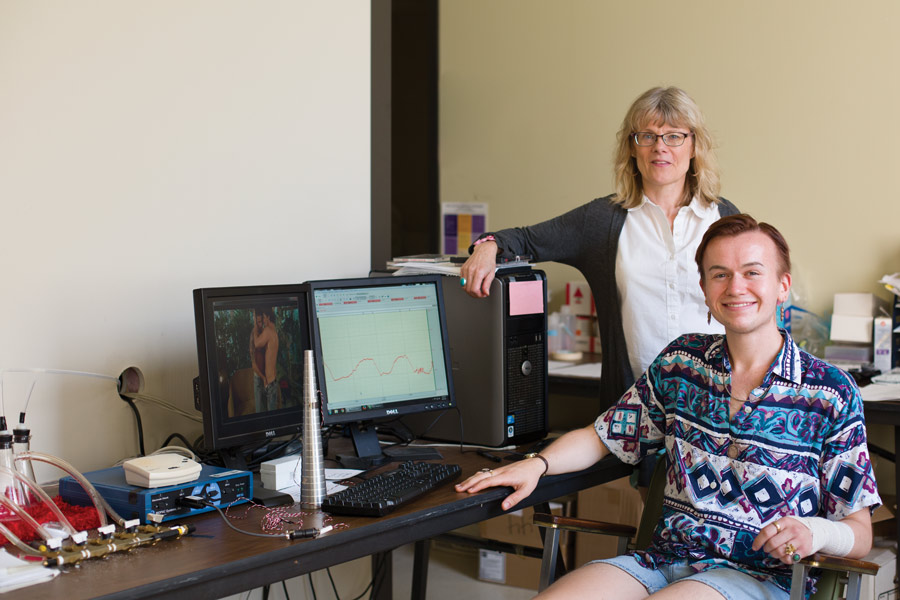
Where the Personal Meets the Professional
Alex Kellogg, a senior psychology and music double major, spent her summer researching a subject one doesn’t read about regularly in a general-interest alumni magazine: variables that affect sexual arousal and activity in people attracted to their own gender. "Alex encountered a concept that I really didn’t know a lot about, called rejection sensitivity," explained her advisor, Professor of Psychology Heather Hoffmann. "Negative moods tend to decrease sexual arousal. There’s some literature out there, but Alex tried to expand what’s available and combine it with information on rejection sensitivity."
"My original interest in psychology was in mood disorders, and one of the best classes I’ve taken was Professor Hoffmann’s course on human sexuality," said Kellogg. "My independent research combined those two interests." Kellogg’s goal was to have a research proposal for a laboratory study based on the work she did throughout the summer. "It’s more than likely going to feed into a senior research project," she said. Having served as a lab assistant to Professor Hoffmann on her most recent research, Kellogg was familiar with the type of methodology needed to assess her research question. Her lab work, she explained, "will involve interviewing subjects who report being attracted to men about their mental health or instilling some kind of particular mood to gauge effects on their sexual arousal."
Learning How to Research
While research may sound like a relatively straightforward task, there’s much more involved, from understanding how to find the best sources to simply figuring out which information is useful. "Learning how to research... this was all new to me," said Kellogg. "I’ve learned that when reviewing existing literature and articles there’s simultaneously way too much info and nowhere near enough information."
Support for this work is brought to you by ASSET (Artists, Scholars, Scientists, and Entrepreneurs of Tomorrow) Program.
